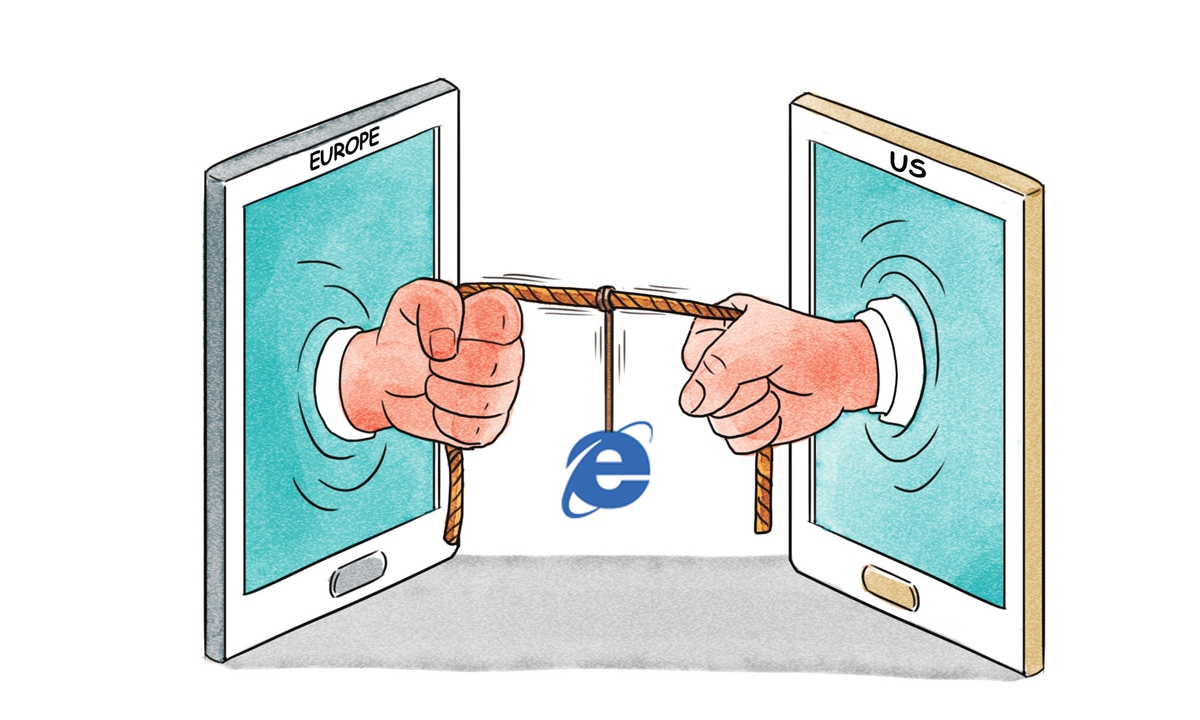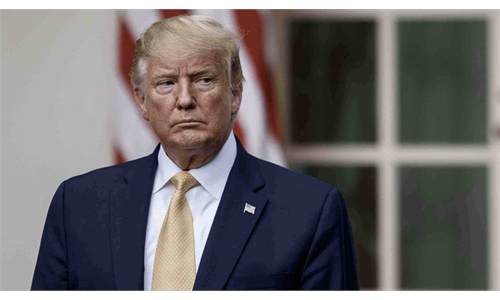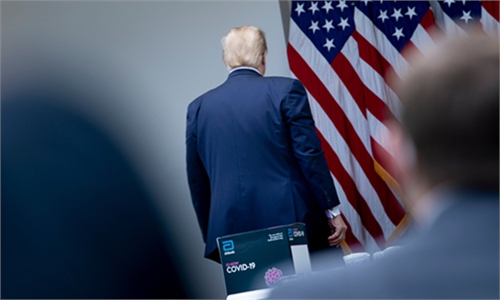
Illustration: Liu Rui/GT
European leaders, such as German Chancellor Angela Merkel and French Finance Minister Bruno Le Maire, have unexpectedly expressed support to US President Donald Trump on Monday after the latter was shut off by social media platforms.Merkel reportedly objected to the decision to ban Trump, saying that lawmakers, not private tech companies, should set the rules governing the freedom of speech. Her stance was echoed by Le Maire, who said that the state, not "the digital oligarchy," is responsible for regulations, calling big tech "one of the threats" to democracy.
Banning Trump on social platforms has sparked great controversy over the freedom of speech. As far as I'm concerned, the so-called freedom of speech is an ideological discourse trap set up by the West. The freedom of speech in Western narratives is deceitful. It's constructed by the West.
The West claims it is an advanced civilization and that freedom of speech is one of the standards for modern civilization. In fact, there is no "real freedom of speech" in the history of modern Western civilization.
If there were real freedom of speech, why did McCarthyism surge and become rampant in the US in early 1950s? If there were real freedom of speech, why have so many reports, messages and information that exposed the violent and extreme nature of Hong Kong's protests in 2019 been deleted on the Western media platforms?
In fact, Western countries regard the "freedom of speech" as a means to interfere in the domestic politics of other countries and tout Western democracy in international politics. Using an alleged lack of freedom of speech as an excuse to attack human rights record in other countries is the usual trick for the US and its allies.
What's the essence of the controversy over free speech caused by the ban on Trump's accounts this time? It's in fact a political confrontation between Trump's supporters and those against him. The two groups have different political appeals, deciding their different stances over whether Trump's freedom of speech was eroded.
Some European leaders voiced objection to the decision to silence Trump on social media platforms. What they are opposing is that freedom of speech is defined by tech giants rather than governments. These European leaders also have some economic considerations. The management and regulation on tech giants is related to the interests of large US tech companies in the Europe. It also matters the security of digital information.
Unlike the US where wide-sweeping regulation on tech companies is missing, Europe has taken a very different stance to regulating tech giants. A CNBC report regards the EU as the most "aggressive" region on this issue. In December 2020, the EU introduced the Digital Markets Act and Digital Services Act with the aim to bring stricter controls on behaviors of tech giants in a number of areas.
European countries want to strengthen management on mega tech companies like Google and Twitter. The EU will neither tolerate, nor allow, scenarios where big companies have unrestrained power over Europeans' life.
Remarks that call big tech "one of the threats" to democracy are actually hypocritical. If the tech giants deleted articles that gave credit to China's social governance, China's development or Communist Party of China's leadership on their social platforms, no Western politicians would jump up to accuse them of being a threat to freedom of speech and democracy.
As hypocritical as this accusation is, the remarks reflect worries in European countries as well as their fundamental demands. We don't know whether big tech is really a "threat to democracy," but what is certain is that they are a threat to the EU's own social management authority. That's why some European leaders have chosen to criticize US tech giants.
The author is secretary general of the Shanghai Academy of Global Governance and Area Studies at Shanghai International Studies University. opinion@globaltimes.com.cn


